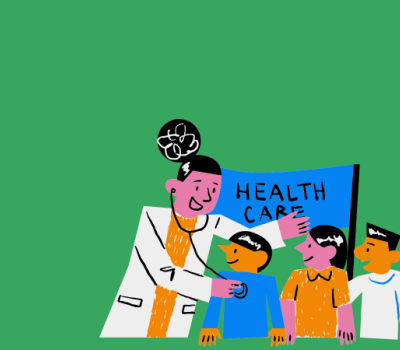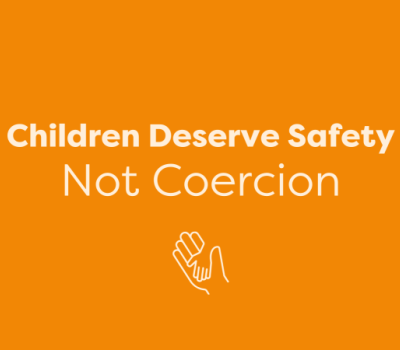Medicaid Cuts Don’t Just Hurt Health—They Weaken Utah’s Economy and Workforce
Just days before Congress was set to go on recess, the U.S. House of Representatives narrowly passed the joint budget resolution (216–214), with all four members of Utah’s House delegation voting in favor. This vote unlocks the next steps in the reconciliation process, whereby individual committees will now be tasked with crafting legislation to meet the financial goals outlined in the budget resolution.
The joint budget resolution includes instructions to extend or enact trillions in tax cuts while increasing spending on border security, immigration enforcement, and national defense. To offset these costs, we remain deeply alarmed by the proposed $880 billion cut targeting the Medicaid program. Each committee must now propose specific Medicaid cuts or other reductions to align with the budget’s targets. These proposals must meet the spending requirements in order to maintain the bill’s “privileged” status—allowing it to pass with a simple majority vote in both the House and, most importantly, the Senate.
As this process unfolds, lawmakers will determine how to implement these cuts—decisions that could have far-reaching consequences for Utah families and communities.
As we’ve discussed in this blog, Medicaid cuts of this magnitude would have devastating consequences for Utah’s most vulnerable communities.
Nearly 50% of Medicaid enrollees in the state are children, and the program also provides critical coverage for people with disabilities, pregnant women, and seniors. Slashing Medicaid funding would jeopardize access to healthcare, impose severe financial burdens on families, and lead to worse health outcomes.
Beyond the human toll, the economic fallout would be staggering. Medicaid funding doesn’t just support enrollees—it sustains hospitals, clinics, nursing homes, and providers across the state. If enacted, these cuts would shift more financial responsibility to Utah, forcing difficult choices about eligibility, provider payments, and essential healthcare services.
The consequences would extend to job losses, reduced state GDP, and an economic downturn that harms all Utahns—not just those who rely on Medicaid.
Here's How Medicaid Cuts Strain Utah's Economy
Cutting hundreds of billions of dollars in federal Medicaid funding would weaken Utah’s economy, leading to substantial job losses and financial strain on businesses, hospitals, and local communities. Medicaid funding doesn’t just support beneficiaries—it directly fuels hospitals, doctor’s offices, pharmacies, and nursing homes. Without these federal dollars, healthcare providers will face major revenue losses, forcing layoffs, business closures, and service reductions.
The ripple effects would spread across Utah’s economy, impacting medical equipment suppliers, food producers, and agricultural businesses.
Medicaid operates as a federal-state partnership, where the federal government provides matching funds based on the Federal Medical Assistance Percentage (FMAP). For FY 2026, Utah’s FMAP is set at 62.46%, meaning that for every $1.00 Utah spends on Medicaid, the federal government contributes $1.66. If Congress cuts $880 billion from Medicaid, Utah would lose over $500 million in federal funding in 2026 alone, causing a $1.1 billion drop in economic activity and a $651 million decline in the state’s GDP—harming businesses, jobs, and local communities.
Funding Loss by District
A new analysis from the Center for American Progress projects that Utah could lose $4.75 billion over the next nine years, jeopardizing healthcare access for over 350,000 people. These cuts would impact every congressional district, but some areas would bear a disproportionate burden. In UT-02, represented by Rep. Celeste Maloy, the projected loss is $1.48 billion. In UT-03, represented by Rep. Mike Kennedy, an estimated 34,000 people could lose coverage—making it one of the hardest-hit districts in terms of enrollment losses—resulting in a financial loss of $1.14 billion.
Utah as a whole cannot afford such massive cuts, but the impact is especially severe in the 2nd and 3rd districts, which include the largest number of counties designated as medically underserved areas.
These are communities where residents already face economic, cultural, and linguistic barriers to healthcare. Cuts of this magnitude would only deepen existing challenges, making it even harder for people in these areas to access the care they need and retain healthcare providers.
Workforce Impact
The employment impact of these cuts would be staggering. A new report from The Commonwealth Fund reports that estimated 6,900 jobs would be lost, including 3,700 in healthcare, which would exacerbate Utah’s existing provider shortages and increase wait times for care. Another 3,200 jobs would be lost in industries that rely on a stable healthcare sector, such as retail, food services, and manufacturing. In a state that already faces provider shortages and long wait times, fewer people will receive timely and high-quality care when they need it most.
Consequently, this scale of job loss would result in a $145.8 million decrease in tax revenue, further limiting the state's ability to fund essential services. As the Utah legislature continues to cite a low budget year, these cuts would exacerbate the problem. Additionally, ongoing income tax reductions would only deepen the state's fiscal challenges.
Hospitals, clinics, and long-term care facilities would be forced to lay off staff, reduce services, and absorb higher uncompensated care costs as more people lose coverage and delay treatment. Rural hospitals, already on fragile financial footing, would be at even greater risk of closure. The economic consequences of these Medicaid cuts would extend far beyond the healthcare sector, harming businesses that rely on a healthy workforce and pushing more families into financial hardship.
The bottom line is simple: Federal Medicaid cuts will shift costs to Utah, reduce access to coverage and care, and weaken our workforce. These cuts don’t just harm beneficiaries—they affect everyone.
Contact Your U.S. Member of Congress Today
Visit the 100% Kids Coverage Coalition website for:
- A simple, step-by-step guide on how to contact your members of Congress
- A data hub with key facts to strengthen your message












